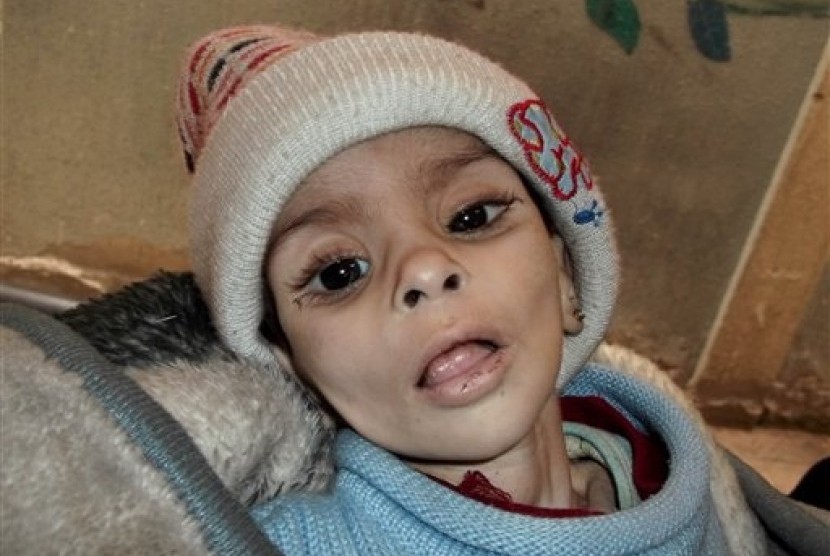REPUBLIKA.CO.ID, GENEVA -- Syrian peace talks resumed in Geneva Tuesday with the UN hoping to break a deadlock over transferring power to a transitional government and for progress on providing desperately needed humanitarian relief.
A fourth day of talks between delegations from President Bashar al-Assad's regime and the opposition National Coalition began around 11:00 am (1000 GMT), the UN said, after they hit an impasse Monday with the start of political discussions.
UN mediator Lakhdar Brahimi said Tuesday's talks would focus on the Geneva communique, the text agreed by world powers in 2012 that calls for the creation of a transitional governing body in Syria.
He said he also hoped for concrete steps on humanitarian aid, especially for besieged and starving families in rebel-held areas in the central city of Homs.
The two sides have been brought together in the biggest diplomatic push yet to end a civil war that has left more than 130,000 dead and forced millions from their homes.
Brahimi admitted Monday that the talks so far "haven't produced much", but said just getting the two sides to sit in the same room was a step forward.
Expectations are low for a breakthrough, especially after the two sides failed to agree on even the basic principles of political talks on Monday.
"If there are no steps forward in the next few days, the process will become more and more fragile," a Western diplomat told AFP.
Monday's session broke up quickly after the regime set out a statement of principles that did not deal with a political transition, instead laying out the need to protect the country's sovereignty, preserve state institutions and stop the threat from "terrorist" groups.
The regime accuses the opposition and its international backers of promoting "terrorism" in Syria, pointing to militant Islamist rebel groups like the Islamic State of Iraq and the Levant (ISIL) and the Al-Nusra Front.
The regime declaration was immediately rejected by the opposition, which says the Geneva communique should be the only basis for talks.
On Tuesday, opposition coalition chief Ahmad Jarba denounced the government declaration as an "absurd regime proposal".
"There is an internationally agreed framework for this conference -- the Geneva communique -- and we are fully committed to it," he said on Twitter.
Despite their frustration, each side vowed it would not be the first to walk away from the talks, which are expected to last until Friday.
In the first tangible promise to emerge from the meetings, Brahimi said Sunday the regime had agreed to allow women and children safe passage from besieged rebel-held areas of Homs.
But there has been no movement since, on either an evacuation or opposition demands that aid convoys be allowed in the areas.
The Old City of Homs has been under siege since June 2012 after rebels there rose against the regime, with an estimated 500 families living with near-daily shelling and the barest of supplies.
UN bodies and the International Committee of the Red Cross have said they are on standby with aid but are waiting for approval to move in.
"We need to get access, and once access is granted, we'll go," Elisabeth Byrs, spokeswoman for UN agency the World Food Programme (WFP), told reporters in Geneva.
"We do not go until we get a green light. Until then, we are on standby," she said.
The WFP said it had trucks in the area ready to deliver enough food for 2,500 people for one month and had ready-to-eat rations for any women and children who choose to be evacuated.
The talks have touched as well on possible prisoner exchanges, with the opposition saying it had a preliminary list of 47,000 people held by the government, including 2,300 women and children whose names it had submitted.
The regime also demanded lists of prisoners held by rebel forces and denied it was holding any children.
Pitting Assad's regime, dominated by the Alawite offshoot of Shiite Islam, against largely Sunni Muslim rebels, the war has unsettled large parts of the Middle East.
It took months of pressure from Washington, which backs the opposition, and Moscow, Assad's key international ally and arms supplier, to bring the two sides together.


